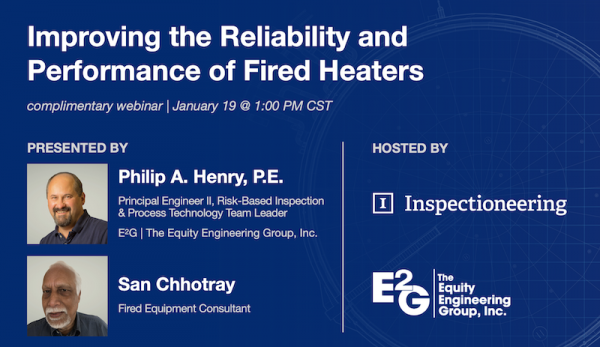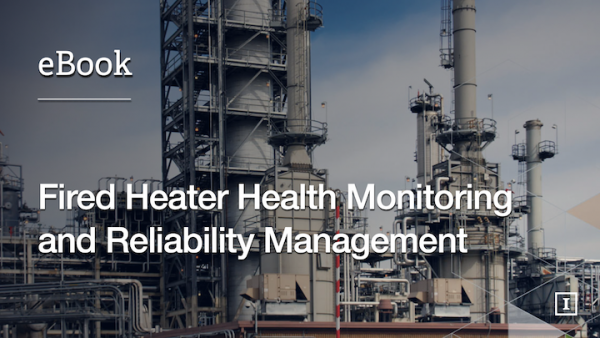API 560, Fired Heaters for General Refinery Service, is a standard developed by the American Petroleum Institute that specifies requirements and gives recommendations for the design, materials, fabrication, inspection, testing, preparation for shipment, and erection of fired heaters, air preheaters (APHs), fans, and burners for general refinery service. API 560 was originally published in September of 1995, with the most recent 5th Edition being released in February of 2016.
API 560 does not apply to the design of steam reformers or pyrolysis furnaces. Covered sections include:
- Purchaser’s and Vendor’s Responsibilities;
- Design Considerations (Process, Combustion and Mechanical);
- Materials of Construction;
- Tubes and Tube Supports;
- Headers, Piping, Terminals, and Manifolds;
- Loads and Allowable Stress;
- Refractory Linings and Castable Design and Construction;
- Structures and Appurtenances;
- Stacks, Ducts and Breeching;
- Burners, Dampers and Controls;
- Fan Drives;
- Sootblowers;
- Instruments and Connections;
- Shop Fabrication and Field Erection;
- Inspection and Testing;
- Air Preheat Systems;
- Efficiency Measurement; and
- Noise Measurement.
Related Topics
- API 579-1/ASME FFS-1 - Fitness-For-Service (FFS)
- API 594 - Check Valves: Flanged, Lug, Wafer, and Butt-Welding
- API 620 - Design and Construction of Large, Welded, Low-Pressure Storage Tanks
- API 650 - Welded Tanks for Oil Storage
- API 660 - Shell-and-Tube Heat Exchangers
- API 661 - Petroleum, Petrochemical, and Natural Gas Industries Air-Cooled Heat Exchangers
- API RP 1160 - Managing System Integrity for Hazardous Liquid Pipelines
- API RP 1173 - Pipeline Safety Management Systems
- API RP 1176 - Assessment and Management of Cracking in Pipelines
- API RP 1188 - Hazardous Liquid Pipeline Facilities Integrity Management
- API RP 538 - Industrial Fired Boilers for General Refinery and Petrochemical Service
- API RP 571 - Damage Mechanisms Affecting Fixed Equipment in the Refining Industry
- API RP 572 - Inspection of Pressure Vessels
- API RP 573 - Inspection of Fired Boilers and Heaters
- API RP 574 - Inspection Practices for Piping System Components
- API RP 575 - Inspection Practices for Atmospheric and Low Pressure Storage Tanks
- API RP 576 - Inspection of Pressure-Relieving Devices
- API RP 577 - Welding Processes, Inspection, and Metallurgy
- API RP 578 - Material Verification for New and Existing Alloy Piping
- API RP 580 - Risk Based Inspection (RBI)
- API RP 581 - Risk Based Inspection Technology
- API RP 583 - Corrosion Under Insulation and Fireproofing
- API RP 584 - Integrity Operating Windows
- API RP 585 - Pressure Equipment Integrity Incident Investigation
- API RP 651 - Cathodic Protection of Aboveground Petroleum Storage Tanks
- API RP 75 - Safety and Environmental Management System for Offshore Operations
- API RP 751 - Safe Operation of Hydrofluoric Acid Alkylation Units
- API RP 754 - Process Safety Performance Indicators for the Refining and Petrochemical Industries
- API RP 934 - Materials and Fabrication of Heavy Wall Pressure Vessels for High-Pressure Hydrogen Ser
- API RP 939-C - Guidelines for Avoiding Sulfidation (Sulfidic) Corrosion Failures in Oil Refineries
- API RP 941 - Steels for Hydrogen Service at Elevated Temperatures and Pressures
- API RP 970 - Corrosion Control Documents
- API RP 982 - Inspection and Assessment of Refractory Linings
- International Organization for Standardization (ISO)
Relevant Links
Topic Tools
Share this Topic
Contribute to Definition
We welcome updates to this Integripedia definition from the Inspectioneering community. Click the link below to submit any recommended changes for Inspectioneering's team of editors to review.
Contribute to Definition




















